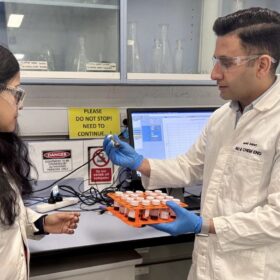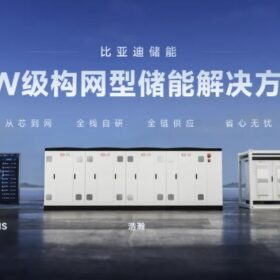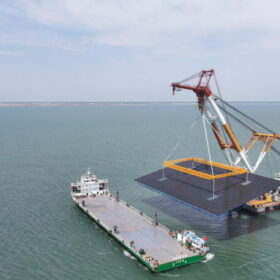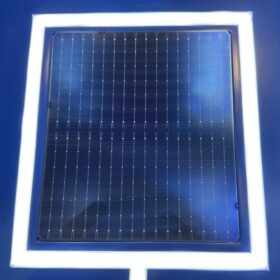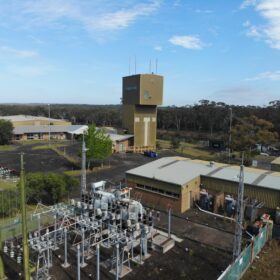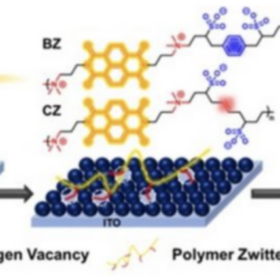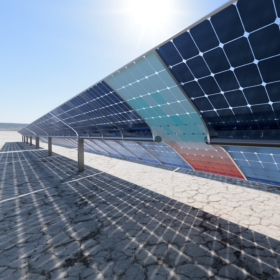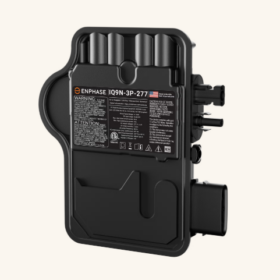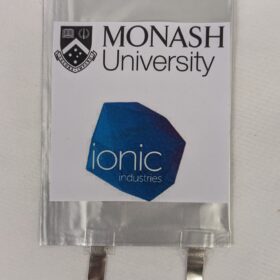Monash engineers boost zinc-air battery performance with cobalt-iron catalyst
Engineers at Monash University in Melbourne have developed a new catalyst they say could bring zinc-air batteries “closer to real-world, grid-scale and transport uses.”
BYD unveils 14.5 MWh storage system, world’s largest yet
China’s EV giant has unveiled the 14.5 MWh DC “Haohan” single-unit DC block with record-breaking capacity to challenge next-generation energy storage market.
China advances 1.8 GW offshore PV project as part of wider solar strategy
A state-led 1.8 GW offshore PV project being built in waters off China’s northeast coast is set to become a model for large-scale marine solar development, with completion targeted by mid-2026.
SolarEdge unveils all-in-one residential inverter and clickable modular battery system
The stackable battery ranges 4.9 kWh to 19.6 kWh per unit while the inverter is available in ranges from 3.8 kW to 13 kW. The company has also introduced a meter socket adapter to avoid triggering costly main panel upgrades.
Solar cell study boosts efficiency beyond 20% using caesium bromide interlayer
A new collaborative study between six universities, including three in Australia have published breakthrough findings demonstrating how caesium bromide, can dramatically improve the efficiency of crystalline silicon solar cells.
Gravitational energy storage trials set for decommissioned coal mine
Australian energy storage company Green Gravity and mining business Wollongong Resources have signed an agreement to deploy gravitational energy storage trials at a decommissioned coal mine.
Scientists boost organic solar cell efficiency using polymer zwitterions
Chinese and US researchers have together developed electroactive polymer zwitterions to modify zinc oxide interlayers in organic solar cells. Their work was found to passivate defects in organic solar cells, helping to improve device performance and stability.
NREL researchers warn of unexpectedly high n-type solar module UV-induced degradation
A National Renewable Energy Laboratory research team analysed n-type modules deployed at a 3 MW commercial PV project to assess a reported high degradation rate, finding ultraviolet-induced degradation was a major factor affecting the facility’s performance.
Enphase introduces 97.5%-efficient microinverter based on gallium nitride tech
The inverter is designed for three-phase grid configurations without using external transformers. It contains gallium nitride technology, a first for Enphase’s microinverters.
Monash claims supercapacitor breakthrough to rival batteries
Researchers at Victoria’s Monash University have developed a new carbon-based material they claim allows supercapacitors to store as much energy as traditional lead-acid batteries, while delivering power much faster than conventional batteries can manage.
